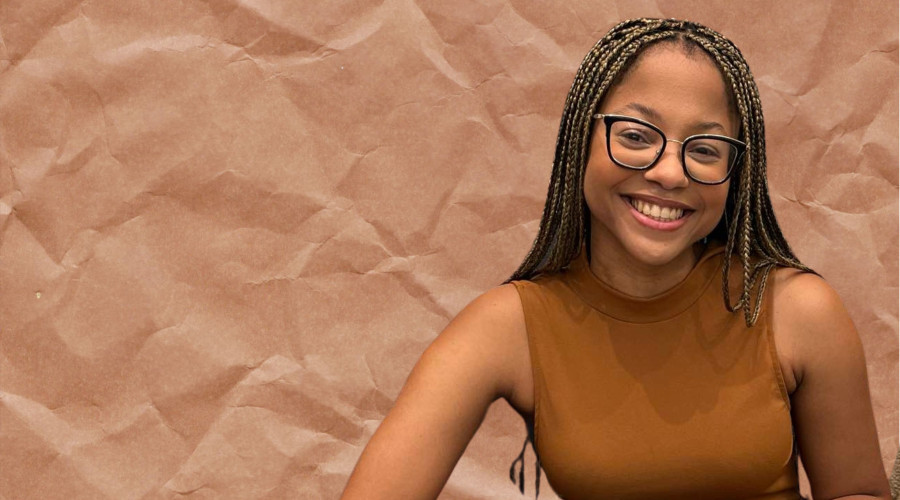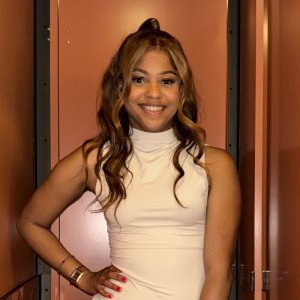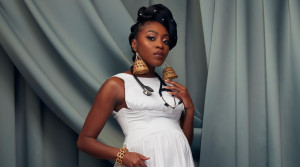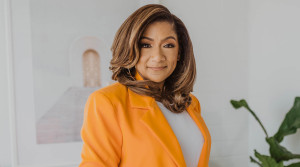My family had no idea how it happened, but it seemed to stem from my time at daycare. My doctor prescribed a strong ear drop with specific instructions, and my mom made sure the daycare staff knew how important it was to follow them. But something went terribly wrong.
Either too much ear drop was applied, or it was given at the wrong time, but within that single day, everything changed. I left daycare hearing just fine, unaware that it would be the last time I'd ever hear anything. That evening, I was sitting watching TV when my mom gently tapped my shoulder. I jumped. I mean, really jumped. My mom looked at me, confused, and said, “Kellina, I was calling you.” That’s when I realized something was wrong.
I looked at her, confused, and said words that still echo in my memory: "Mom, I can’t hear you."
My mom panicked, immediately reaching for the phone to call my grandmother, who was a nurse. Grandma rushed home from the hospital, bringing her tools to test my hearing. I didn’t respond. No matter what they did, there was silence.
I watched as my grandma picked up the phone and spoke to someone—it was my doctor. Despite the urgency, we couldn’t see him until the next day because he was fully booked. When the time finally came, I sat in the office while my doctor repeated the same tests my grandma had done the night before.
And then, the moment came. My doctor looked at my mom and grandma, his face serious, and broke the news that would change everything: “I’m sorry, but there’s nothing we can do. Kellina is 100% deaf.”
The weight of those words hit my family like a storm. In that moment, our lives took a new direction, one that none of us could have foreseen. At the age of 4, my world became silent, but it was the beginning of a different journey—one that shaped me into the person I am today.
Growing up deaf, I experienced bullying from both kids and, surprisingly, teachers who underestimated me.
Even though my hearing aids allowed me to hear at a 90% level, they believed that my deafness limited my potential, so they placed low expectations on what I could achieve.
I remember sitting down with my high school counsellor, excitedly sharing my dream of becoming a doctor so I could help people who looked like me. But instead of encouragement, she looked at me and said, “Kellina, why don’t you choose something else?” She didn’t believe in me—because of my race and my disability.
She even went as far as printing out career paths that I wasn’t interested in at all. I showed them to my mom, who looked at me and said, “No, I expect you to go to university and become a doctor.” I told my counselor about my mom’s expectations, but she didn’t respect it. She said, “Well, Kellina, you won’t be able to hear through the microscope, and that’s why you should be a nurse or something else.”
I was confused and frustrated. I knew what I wanted, and I was prepared to put in the hard work. I believed in my dream, even if she didn’t.
When it came time to apply for university, I was filled with hope. I applied to all the schools and programs I dreamed of attending. Little did I know, a storm was waiting for me.
One by one, I received letters from every university I applied to, saying that my grades were missing. I was devastated. I went into my counsellor office and asked her. She didn’t submit my transcripts and I knew in my gut that my counselor had sabotaged me because she didn’t believe in me.
I called my mom and grandma, crying my heart out. I knew how much they wanted me to go to university. I would have been the first in my family to attend.
I stormed into my counselor’s office, angry and upset. When I confronted her, she didn’t deny what she did, and she was indifferent.
I said, “You’ve screwed up my future because you didn’t believe in me. Did you ever stop to think how that would make me feel?”
She was stunned that I stood up for myself. I called my grandma, still upset, and she told me, “People will doubt you, Kellina, but you have to keep going. Show them they’re wrong.”
My family believed in me and pushed me to aim high. They never accepted anything less than my best, regardless of my hearing loss. That contrast—low external expectations versus my family’s high ones—shaped my resilience. I knew I had to prove the doubters wrong, but I also had to rise to the challenge my family set for me.
Navigating the world as a Black woman who is deaf has brought unique challenges. The intersections of race, gender, and disability have played a huge role in shaping how people perceive and treat me. As a Black woman, there’s often the stereotype that we are “strong” and can handle anything. But that assumption sometimes hides the fact that I need support and understanding just like anyone else. Being both Black and deaf has meant dealing with both racism and ableism—two forces that can sometimes feel overwhelming but have also fueled my determination.
{https://www.instagram.com/p/ClyrgQFu17e/}
One of the most hurtful assumptions people make is thinking that because I’m deaf, I’m somehow less capable or less intelligent. It’s isolating when people assume I can’t participate fully in conversations or contribute meaningfully in work settings. Another common misconception is that all deaf people can read lips. I can’t, and it’s exhausting when people expect me to understand them that way. These assumptions make me feel like people are focusing on my deafness more than my capabilities.
Well-meaning people often say things that are unintentionally offensive. Comments like, “You don’t *look* deaf,” or “It’s amazing how well you function despite your hearing loss,” are frustrating because they imply that deafness is a limitation or that my success is an exception. People often raise their voices or over-enunciate when speaking to me, thinking it helps, but it doesn’t. What these actions do is draw unnecessary attention to my hearing loss, rather than treating me like anyone else.
When interacting with someone who’s deaf, the most important thing is to ask what works best for us in terms of communication. Not all deaf people use sign language or lip-read, and making assumptions can create unnecessary barriers. Speak at a normal pace, maintain eye contact, and use gestures if needed. If something isn’t clear, don’t hesitate to write things down or use other tools. Above all, don’t exclude us from conversations—we have just as much to contribute as anyone else.
Applying for jobs as a deaf person has been a tough journey for me. I’m highly qualified, with a degree in psychology, and my resume is packed with skills and experience—yet that hasn’t always been enough. Each time I fill out an application, there’s always the question, *“Do you wish to disclose your disability?”* I experimented with saying “yes” and “no,” and what I found was disheartening. When I answered “yes,” calls from employers nearly stopped. It felt like that one answer defined me more than all my qualifications did.
When I do make it to interviews, the challenges don’t end. Sometimes interviewers avoid eye contact, or they look around the room as they talk. For someone who relies on visual cues, this makes it so much harder to understand and connect. It would help so much if interviewers provided questions ahead of time or gave me a printed list of questions. But this rarely happens, and it leaves me struggling to follow along when questions sound similar or blend together.
I often hide my hearing aids under my hair to avoid judgment. I want them to see *me*—my skills, my passion—not my disability. But I still wonder when I’ll feel comfortable enough to show my hearing aids openly. I remember one interview where I decided not to hide them, and the interviewer kept staring at my hearing aids. At one point, she asked, *“How would you hear if there was an emergency?”* I couldn’t believe it—this had nothing to do with my skills or the job, yet I felt like I had to prove my worth in a way no one else did.
If you’re reading this and also find interviews challenging, my advice is to research the company before you apply. Look for those that respect and accommodate disabilities, where you’ll be valued for your abilities and strengths. You deserve to be seen for who you are and what you can bring to the table.
Workplaces often assume that accommodating a deaf employee is too complicated or expensive. But the reality is that small changes—like providing captions in videos or ensuring communication tools are accessible—can make a huge difference. Managers also sometimes think that deaf employees need constant supervision, when in fact we just need the right tools to communicate and collaborate effectively. What’s most frustrating is when we are overlooked for opportunities because employers assume we can’t participate fully.
I became a mental health coach because I know firsthand what it’s like to feel misunderstood and limited by societal expectations. Having faced so many barriers, I wanted to help others who are going through similar struggles. My coaching focuses on helping people embrace their differences—whether it’s a disability or another challenge—and turn those perceived “weaknesses” into strengths. What I love most about coaching is seeing people grow in confidence and realize their potential. I help them set goals, overcome obstacles, and understand that they are capable of achieving great things, regardless of the limitations society tries to place on them.

 By
By 





